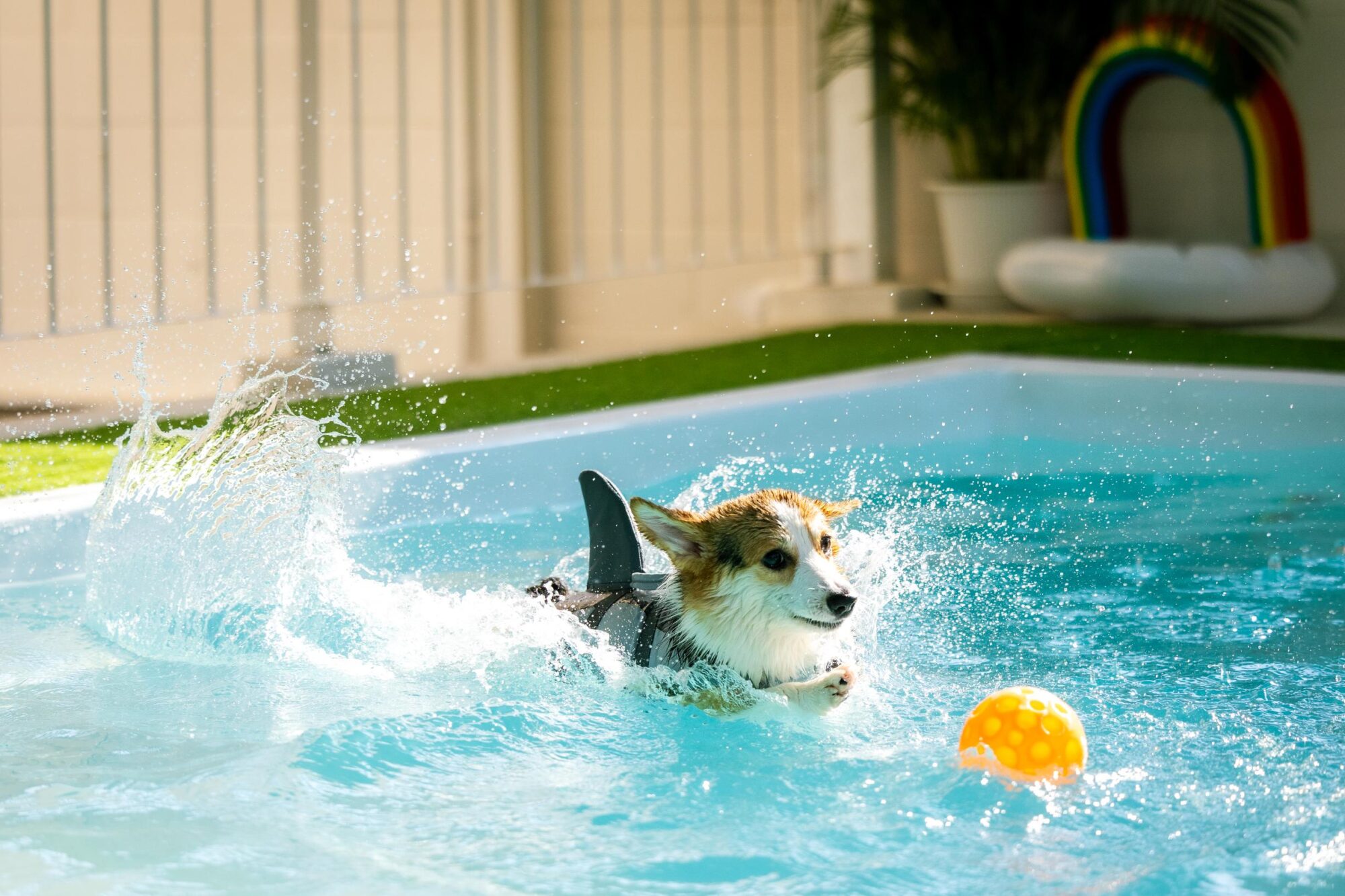Swimming Pool Safety for Pets

If you have a swimming pool in your backyard or plan to spend a lot of time with friends who do, it’s time to think about swimming pool safety for pets. Our furry family members can enjoy a dip in the pool as much as we do, but pools can also pose serious risks to animals.
With this guide from the team at Dupont Veterinary Clinic, you can keep your pets safe and happy around the water this summer.
Common Pet Pool Hazards
One of the first steps in protecting your pets is knowing what the top pet pool hazards are. First things first: despite what we might assume, many pets are not natural swimmers.
Even pets that do know how to swim can quickly get tired after swimming in the open water of a pool. Plus, there are all sorts of potential accident triggers. Slippery pool decks. Poor visibility. Exciting sights, smells, and sounds. Irritating chemicals like chlorine can irritate your pup or kitty’s sensitive skin and eyes.
Here are some tips for keeping your furry family member safe:
Focus on Pet Drowning Prevention
Pet drowning prevention starts with supervision. Never leave pets unattended near a pool. Even if your dog enjoys swimming, he might not be able to exit the pool easily, and could panic. Panic is never good in swimming situations—with pets or humans.
If the backyard pool is yours, consider installing a pet-friendly ramp or steps to help your pet safely get in and out of the water. Then, use treats and play to practice using it so your pet can easily get out.
When it comes to picking a pool cover, don’t choose a soft or floating cover that a pet could easily fall through. Invest in a hard cover that can keep the pets—and kids—in your life safe.
For even more protection, install a fence and a pool alarm. You can truly never be too safe if you have a pool on your property.
Consider Using a Life Vest
Educating yourself about water safety for pets means knowing your pet’s limitations—especially based on their breed and age.
Some pets, like brachycephalic dog breeds (like bulldogs and pugs), can struggle to swim due to their body structure. Puppies and older dogs can have a harder time, too.
The fix? Put a well-fitted life vest on your furry friend. If you have any doubt about your pet’s swimming ability, a life jacket can, well, save their life—and help you enjoy the swimming experience.
Rinse Off the Chlorine or Salt
For chlorinated or saltwater pools, always rinse your pet after a swim to prevent skin irritation. Warm water from a hose will do the trick—or an outdoor shower if you or your backyard-pool-having friend has one.
Staying safe in the swimming pool with your pets takes a bit of planning and preparation, but it’s worth the peace of mind.
If you have any questions about how to keep your pet safe around water this summer, the team at Dupont Veterinary Clinic is happy to help. Schedule an appointment with us today by calling (260) 637-7676, and we’ll help get your pet ready for summer adventures.
